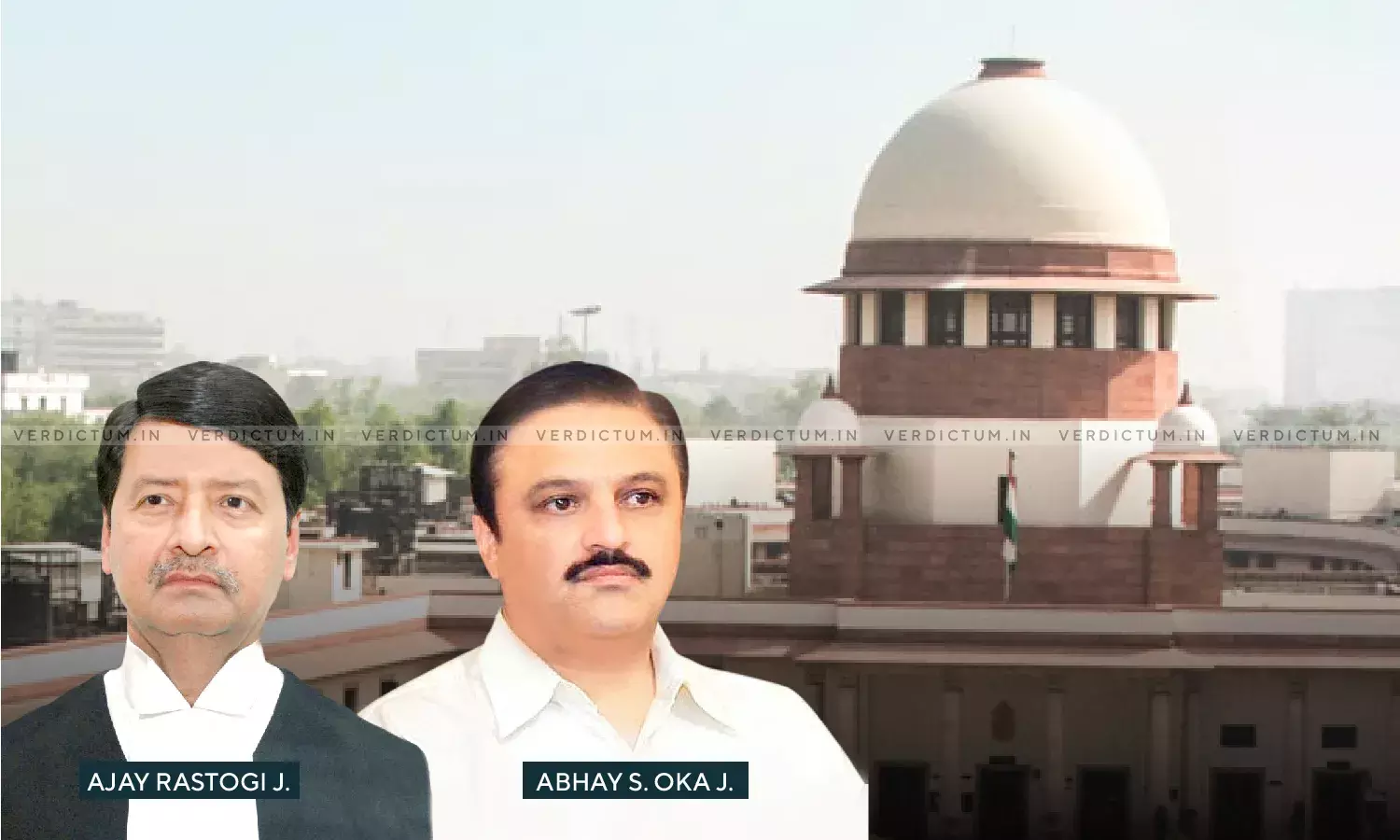Failure To Produce Accused Physically Or Virtually Before Court While Extending His Judicial Custody Is Gross Illegality: SC

The Supreme Court has observed that it is a mandatory requirement to procure the presence of the accused either physically or virtually while extending his remand to judicial custody.
In that context the Bench of Justice Ajay Rastogi and Justice Abhay S. Oka observed thus "The failure to procure the presence of the accused either physically or virtually before the Court and the failure to inform him that the application made by the Public Prosecutor for the extension of time is being considered, is not a mere procedural irregularity. It is gross illegality that violates the rights of the accused under Article 21."
Clause (b) of subsection (2) of Section 167 of Code of Criminal Procedure lays down that no Magistrate shall authorise the detention of the accused in the custody of the police unless the accused is produced before him in person.
In this case, the appellants were accused of offences under Sections 3(1), 3(2), 3(3), 3(4), 3(5), and 4 of the Gujarat Control of Terrorism and Organised Crime Act, 2015.
The main ground urged in support of the appeals is that when the Special Court passed orders on the reports submitted by the Public Prosecutor by which time to complete investigation was extended up to 180 days, the presence of none of the accused was procured either physically or through video conference.
Senior Advocate Nitya Ramakrishnan appeared for the appellants and Aman Lekhi, Additional Solicitor General of India and Tushar Mehta, Solicitor General of India appeared for the Respondents.
The Court noted that the requirement of the law is that while extending the remand to judicial custody, the presence of the accused has to be procured either physically or virtually.
"When the Special Court exercises the power of granting extension under the proviso to subsection (2) of Section 20 of the 2015 Act, it will necessarily lead to the extension of the judicial custody beyond the period of 90 days up to 180 days. Therefore, even in terms of the requirement of clause (b) of subsection (2) of Section 167 of CrPC, it is mandatory to procure the presence of the accused before the Special Court when a prayer of the prosecution for the extension of time to complete investigation is considered.", the Court observed.
The Court refused to accept that the accused is not entitled to raise any objection to the application for extension.
"The scope of the objections may be limited. The accused can always point out to the Court that the prayer has to be made by the Public Prosecutor and not by the investigating agency"., the Court noted.
The Court noted that no material was placed on record to show that technical reasons/difficulties prevented the prosecution from producing the accused before the Special Court through video conference.
The Court further observed that failing to produce the accused before the Court at the time of consideration of the application for extension of time will amount to a violation of the right guaranteed under Article 21 of the Constitution.
"The orders passed by the Special Court of extending the period of investigation are rendered illegal on account of the failure of the respondents to produce the accused before the Special Court either physically or virtually when the prayer for grant of extension made by the Public Prosecutor was considered. It was the duty of the Special Court to ensure that this important procedural safeguard was followed.", the Court held.
Accordingly, the Court set aside the orders passed by the Special Court granting extension to complete investigation. The Court also directed the accused to be enlarged on bail.
Cause Title- Jigar @ Jimmy Pravinchandra Adatiya v. State of Gujarat with Ors.
Click here to read/download the Judgment

